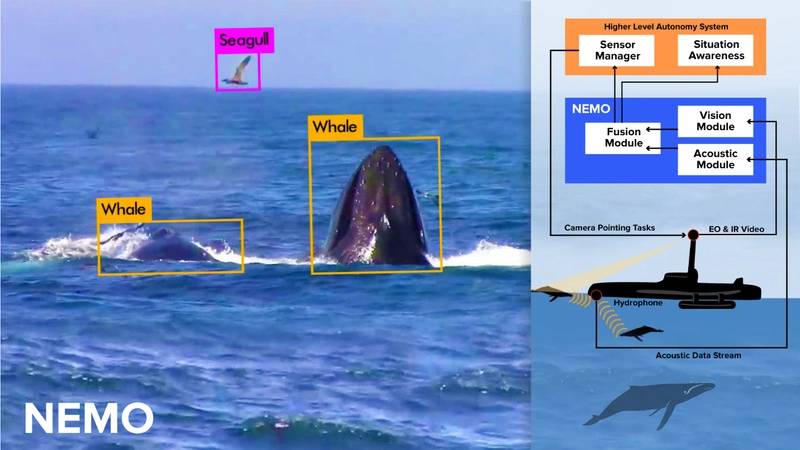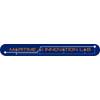DARPA Funds Tech to better Detect Whales
Charles River Analytics won a $1.5 million follow-on contract from the Defense Advanced Research Projects Agency (DARPA) to develop a multi-sensor fusion module that incorporates deep learning to autonomously and accurately detect whales and other aquatic mammals.
To protect marine mammals from collisions and sonar exposure, sailors must keep a vigilant lookout. Operators of remotely operated vehicles must also stay alert, and uncrewed surface vehicles’ (USVs) currently limited and narrow video feeds create risk, too. To reduce the strain on human lookouts, and give USVs the ability to steer clear, NEMO (Nautical Evaluation of Mammal Observation) will be designed to improve visual detection and classification onboard crewed and uncrewed vessels by developing new animal and ship detectors.

NEMO combines information from our Awarion Autonomous Lookout system with deep learning YOLO neural networks and probabilistic data fusion methods to accurately detect and classify marine mammals in both visual and acoustic feeds.
“At Charles River Analytics, we work on a lot of interesting tech to support autonomy,” said Ross Eaton, Director of Marine Systems in Charles River’s Sensing, Processing, and Applied Robotics Division and Principal Investigator on the NEMO effort. “NEMO is especially cool because we’re also working to protect some of the most vulnerable animal populations on the planet. Being able to work on interesting science that will have a positive impact on the natural environment is a win-win for our team.”
Related News




